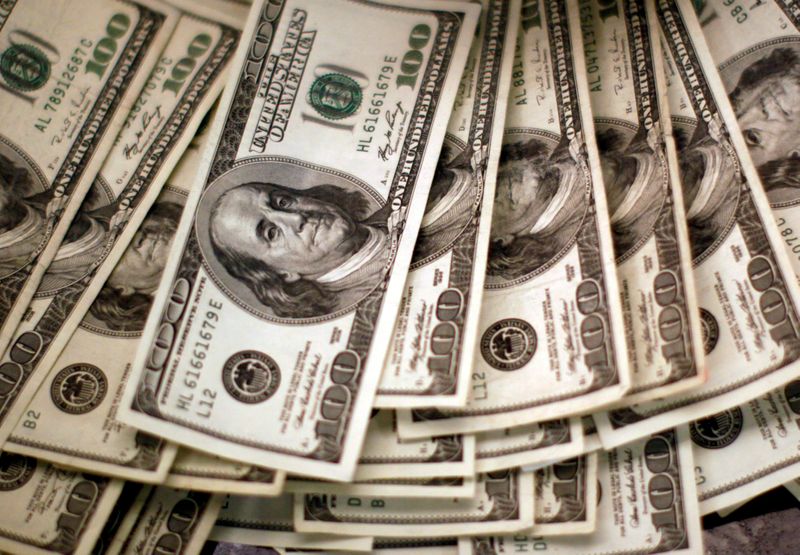By Tom Westbrook
SYDNEY (Reuters) - The dollar hit a 10-week low on Monday as investors heralded Joe Biden's election as U.S. president by buying trade-exposed currencies on expectations that a calmer White House could boost world commerce and that monetary policy will remain easy.
The Chinese yuan
Sterling
Biden crossed the threshold of the 270 electoral college votes required for victory on Saturday by winning the battleground state of Pennsylvania. Republicans appear to have retained control of the Senate, though the final makeup may not be clear until runoff votes in Georgia in January.
"The outcome is ideal from a market point of view," said CMC Markets' chief strategist in Sydney, Michael McCarthy.
"Neither party controls the Congress, so both trade wars and higher taxes are largely off the agenda."
The prospect of more gridlock also means that expectations for a massive U.S. fiscal stimulus package have been lowered, which has sent bond yields down in anticipation of less borrowing and more quantitative easing from the Federal Reserve.
The buoyant mood sent equities surging and the safe-haven Japanese yen
The yuan, particularly sensitive to the election outcome because of a perception that Biden will take a softer or more predictable line on China, was also boosted by strong Chinese trade data over the weekend to stand at 6.5758 per dollar.
The South Korean won
"The undertow of dollar weakness is probably going to have a bit of a way to run in terms of the Fed and also less trade tension as something positive for other currencies," said Westpac currency analyst Sean Callow.
RISKS REMAIN
Selling was held in check by underlying virus worries and because Donald Trump, the first incumbent to lose a re-election bid in 28 years, has made no sign of conceding while fighting legal battles to overturn the result.
Traders are also wary of fresh lockdowns as coronavirus cases surge, with the global tally of infections topping 50 million on Sunday as cases in the United States surpassed 10 million.
"To me the bearishness that's in the dollar needs to get reassessed," said Hayden Briscoe, head of fixed income at UBS Asset Management in Hong Kong.
He cited the possibility of fresh lockdowns in the United States or hoped-for European stimulus ultimately disappointing as major risks to the dollar's decline.
Europe's fiscal and monetary responses to a second wave of coronavirus infections, which have already prompted new restrictions on everyday life, will be in focus when European Central Bank President Christine Lagarde speaks on Thursday.
Later on Monday are appearances from Bank of England Governor Andrew Bailey and chief economist Andy Haldane at 1035 GMT and 1400 GMT, where talk of negative rates is in focus. Dallas Fed President Robert Kaplan makes a speech at 2200 GMT.
On Wednesday, the Reserve Bank of New Zealand meets, with expectations it will hold rates but lay the framework for going negative next year.
In emerging markets, the beaten-down Turkish lira

The lira has slid 30% to record lows this year amid the coronavirus pandemic as investors worried about falling forex reserves and double-digit inflation.